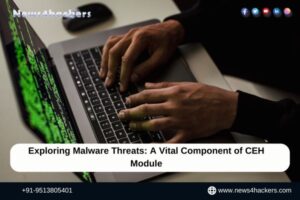7 Easy Methods To Protect Yourself From Cybersecurity Threats
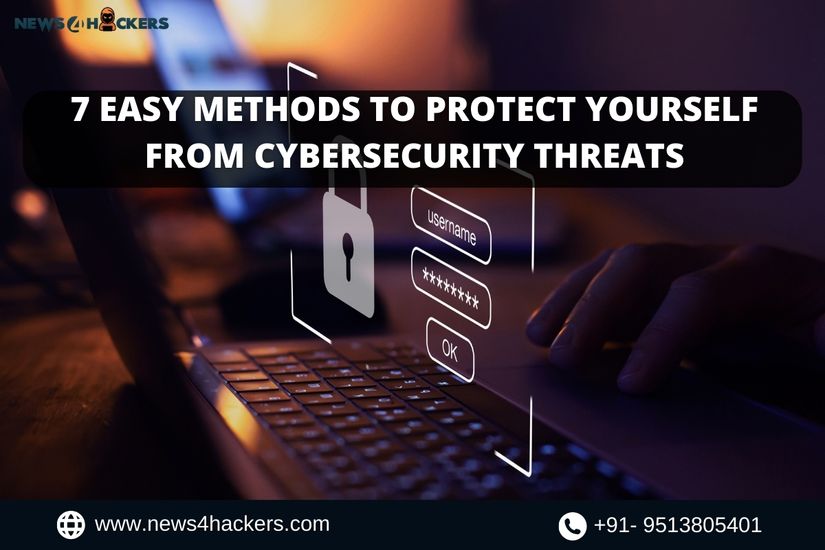
7 Easy Methods To Protect Yourself From Cybersecurity Threats
The potential dangers to our individual financial circumstances and personal identities, arising from cybersecurity vulnerabilities, were already alarming prior to the advent of autonomous machine intelligence. Given the increasing integration of artificial intelligence (AI) in our everyday activities, the present moment is an opportune occasion to reexamine this matter and pose the inquiry: “What are the most effective strategies for safeguarding ourselves from cyber threats?” And who would be more suitable to inquire than a prominent authority in the field?
Let us start our voyage in this article by defining more details regarding 7 Easy Methods To Protect Yourself From Cybersecurity Threats.
Here are 7 ways to shield yourself from cybersecurity threats:
1. Use multi-factor authentication.
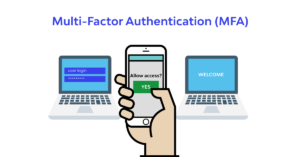
Multi-factor authentication refers to the process of accessing online banking or other significant accounts by utilizing an additional form of verification, apart from the conventional password. This supplementary confirmation typically involves the transmission of a code or text message to a designated cell phone number. In contemporary times, the majority of accounts provide users the opportunity to incorporate multi-factor authentication into their security measures. However, it is observed that a significant portion of individuals tend to disregard this option by opting to bypass it and go with their daily activities.
2. Choose harder-to-guess passwords.
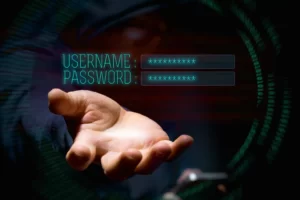
Although this information may be well-known, it is evident that there are individuals who continue to utilize the simplistic combination of “1 2 3 4” as their personal identification number (PIN) and “password” as their password. An effective password should consist of a minimum of 12 characters and encompass a combination of both uppercase and lowercase letters, numerical digits, and special symbols.
It is possible that the user has progressed to employing a more secure password; yet, they continue to utilize the same password for a wide range of applications. It is advisable to consider employing a password application or a third-party service that facilitates the generation of distinct and intricate passwords for individual login credentials. By utilizing such a tool, users only need to recall their primary password, while the application or service produces and manages unique passwords for each login.
According to Dr. Maurer, a famous cybersecurity expert all over the globe, the concern of “concentration risk,” which refers to the reliance on a single third party or application to store several passwords in a centralized manner, is mostly relevant for major corporations and government entities. However, for ordinary individuals in the United States, this approach offers a valuable and supplementary level of security.
In this instance, the individual presents a compelling argument regarding the existence of tradeoffs in various cybersecurity choices. Although there may be a minor level of risk associated with consolidating all passwords under a single entity, the alternative of managing numerous distinct passwords poses a significantly higher risk.
3. Don’t log in to sensitive accounts using unsecured networks.
This refers to the networks available in the hotel or on the aircraft.
4. Freeze your credit.

One of the most alarming revelations from Maurer’s research is the inherent unreliability of our Social Security numbers as a means of ensuring security. Throughout the duration of our lives, a considerable number of individuals and organizations have obtained the ability to acquire and utilize this highly delicate form of identification. In the event that individuals possess our Social Security number, they are also granted access to our credit, which is regarded as one of the utmost critical aspects necessitating safeguarding.
Inquiry pertains to the methods by which unauthorized individuals can be prevented from obtaining access to their credit, even in the event that they possess the individual’s Social Security number. Induce a state of freezing. By implementing a credit freeze, individuals render their credit inaccessible to unauthorized parties.
In what manner can this task be accomplished? It is recommended that individuals visit the three primary credit bureaus, namely Equifax [EFX-5.2%], Experian, and Transunion, in order to initiate a credit freeze or lock on their credit. The desired modifications can be implemented using traditional means such as mail or phone, as well as through online channels, provided that appropriate security measures, such as multi-factor authentication, are in place. The online method offers the advantage of expeditiously effecting the changes within a few minutes.
It is important to note that by implementing a credit freeze, the accessibility of one’s credit information becomes significantly restricted, rendering it virtually inaccessible to most others. Consequently, in the event that you intend to utilize your credit for any purpose, it will be necessary to “unfreeze” and “refreeze,” or alternatively, simply “thaw” your credit for a specified duration. As an illustration, in the event that an individual intends to get a new vehicle and intends to utilize their credit, it is advisable to inquire with the lender regarding the specific credit bureau they employ. Subsequently, the individual should proceed to temporarily lift the freeze on their credit with the aforementioned credit bureau for the required duration.
Parents should also give serious consideration to the option of freezing their children’s credit. This is because, if their children possess a Social Security number, they will inevitably have a credit file. Consequently, the unmonitored credit of children can potentially serve as an easily accessible target for hackers and others engaged in theft.
5. Use credit cards with chips, not debit cards.
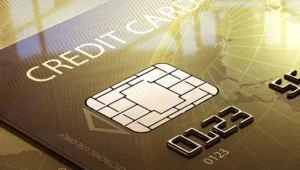
Although it may not align with the principles advocated by Dave Ramsey, unless one is genuinely addicted to credit card spending, utilizing credit cards can be an effective strategy for preserving personal funds, as it involves leveraging someone else’s money.
This proposal was initially proposed by Frank Abagnale, Jr., a former fraudster who later became an FBI informant and gained recognition through the portrayal of his life by Leonardo DiCaprio and Tom Hanks in the acclaimed film, Catch Me If You Can. The focus of this recommendation primarily pertains to logistical considerations.
Although many debit cards offer a certain level of safety that facilitates the recovery of funds in the event of theft, it is important to note that if an individual illicitly acquires and utilizes your debit card to make unauthorized purchases, it is your own funds that are ultimately lost and necessitate retrieval. In the event of utilizing a credit card, it is the financial responsibility of the credit card company to pursue the retrieval of funds. Naturally, the advantages derived from maintaining a monthly balance on the credit card are significantly diminished, if not entirely eradicated, due to the excessive interest rates imposed by the credit card business, which can be perceived as an appropriation of funds.
6. Get creative with the answers to your security questions.
The aforementioned security inquiries pertain to the maternal ancestral surname, the paternal middle name, the least preferred vegetable, and the favored domesticated animal. According to Dr. Maurer, it is typically not obligatory for individuals to provide a response that directly addresses the particular issue posed to them.
In the context of responding to a query regarding one’s least preferred vegetable, it is plausible to offer the response intended for an inquiry about the name of one’s beloved pet. Indeed! If an individual consistently responds to identical questions in an identical manner, it will facilitate the task for hackers to gain access to several accounts if they successfully decipher the security measures for one account.
7. Track your transactions.
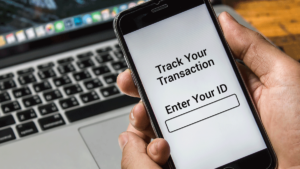
Therefore, should we completely abstain from utilizing online banking? According to Maurer, the answer is negative. Online banking offers substantial advantages and facilitates enhanced accessibility to financial services, particularly for individuals with limited mobility or residing in remote regions. The majority of prominent financial institutions have highly effective security systems and protocols. Consequently, it is more advantageous for individuals to familiarize themselves with and comprehend these protocols, rather than remaining uninformed or oblivious.
Despite taking precautions, there remains a distinct possibility that one’s personal information may still be susceptible to theft. There are limitations to the preventive measures we can undertake to prevent this final outcome. One of the most effective methods for mitigating potential harm is through the implementation of a traditional practice: monitoring and documenting one’s financial activities.
As part of my regular budgeting process, I engage in this activity on a weekly basis, employing high-quality third-party software. In contrast, Dr. Maurer performs this task on a monthly basis, utilizing a paper statement that he can scan and mark off.
So, what about AI?

According to Maurer, this situation might be viewed as a story with both positive and negative aspects. The negative development lies in the fact that the emergence of artificial intelligence (AI) has facilitated the process for foreign criminals to effortlessly convert their enigmatic deceptive communications into coherent English and other languages, enabling them to effectively prey on unsuspecting individuals. However, it is important to note that the situation is not entirely negative. The capacity of artificial intelligence to rewrite website code in a more safe manner has the potential to significantly improve the overall security of several websites and services.
Upon reviewing the aforementioned list, what measures can be taken to enhance one’s personal cybersecurity protection systems?
In this context, you can update your current knowledge parameters of cyber security with the help of well-researched cybersecurity training programs in Delhi NCR, such as 1 Year Diploma in Cyber Security Course by Craw Security, the sister vertical cyber security training institute of News4Hackers, the Cybersecurity Info, and News Portal.
About The Author:
Yogesh Naager is a content marketer who specializes in the cybersecurity and B2B space. Besides writing for the News4Hackers blog, he’s also written for brands including CollegeDunia, Utsav Fashion, and NASSCOM. Naager entered the field of content in an unusual way. He began his career as an insurance sales executive, where he developed an interest in simplifying difficult concepts. He also combines this interest with a love of narrative, which makes him a good writer in the cybersecurity field. In the bottom line, he frequently writes for Craw Security.
Read More Article Here



